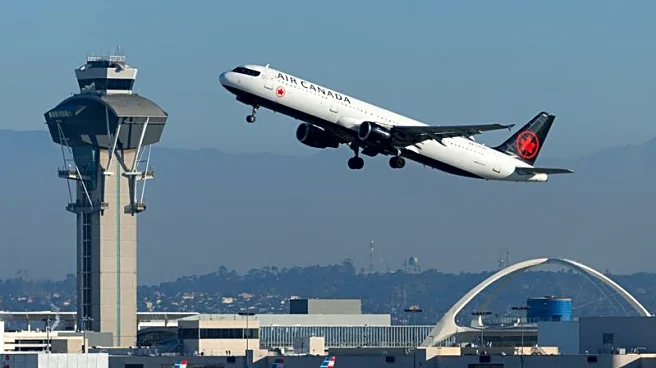What's Happening?
A recent incident involving a Waymo autonomous vehicle making an illegal U-turn has raised significant concerns about the safety and regulation of driverless cars. The event has prompted discussions on how to manage situations where autonomous vehicles fail to adhere to traffic laws. Jake Nelson, AAA Director of Traffic Safety Advocacy, highlighted the responsibilities of autonomous vehicle companies in ensuring their technology complies with road safety standards. The incident underscores the challenges faced by law enforcement and the public in dealing with self-driving cars that do not follow established traffic rules.
Why It's Important?
The rise of autonomous vehicles presents both opportunities and challenges for traffic safety and regulation. As driverless technology becomes more prevalent, ensuring these vehicles operate safely and within legal parameters is crucial. The incident with Waymo's vehicle highlights potential gaps in current traffic laws and enforcement mechanisms when dealing with autonomous technology. This situation could lead to increased scrutiny and calls for more stringent regulations to ensure public safety. Stakeholders, including policymakers, technology companies, and safety advocates, must address these issues to prevent accidents and maintain public trust in autonomous vehicle technology.
What's Next?
In response to the incident, there may be increased pressure on autonomous vehicle companies to enhance their systems' compliance with traffic laws. Policymakers could consider revising regulations to better accommodate the unique challenges posed by driverless cars. Additionally, public awareness campaigns may be necessary to educate citizens on how to interact with autonomous vehicles safely. The incident could also prompt further research and development in autonomous technology to prevent similar occurrences in the future.
Beyond the Headlines
The ethical implications of autonomous vehicles are significant, as they challenge traditional notions of accountability and responsibility in traffic incidents. The technology's ability to make decisions independently raises questions about liability in accidents and the role of human oversight. As the industry evolves, these ethical considerations will become increasingly important in shaping public policy and consumer trust.










